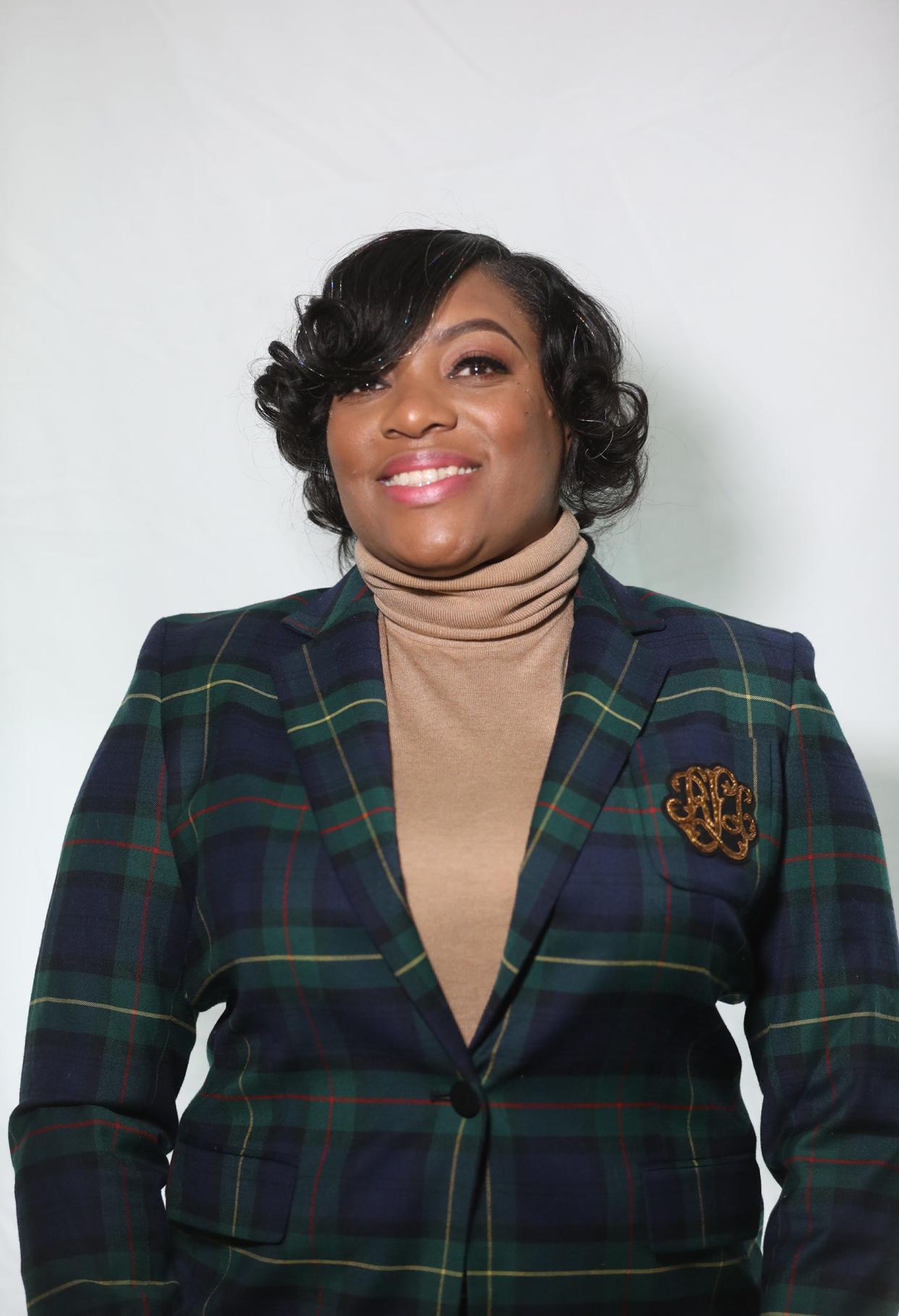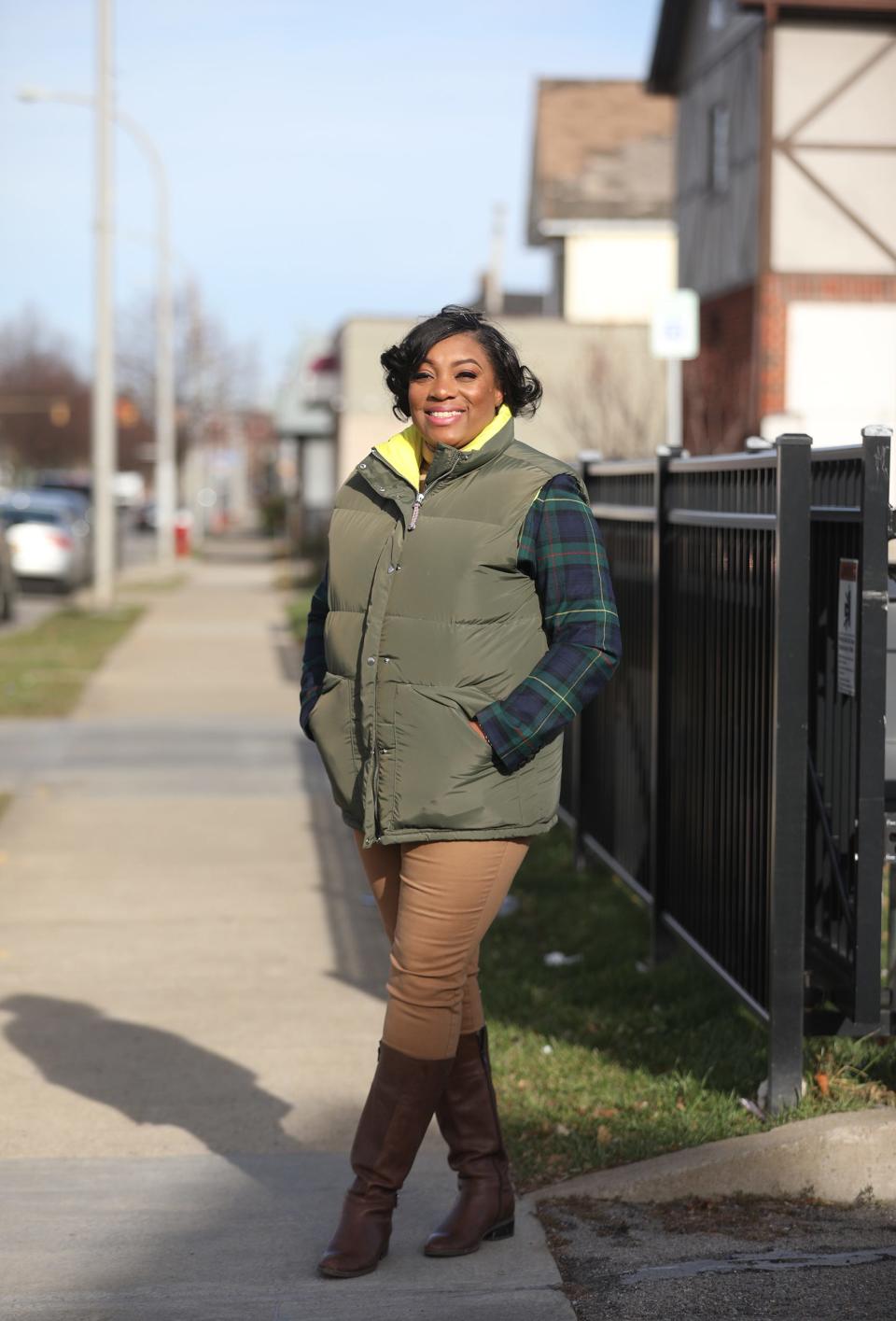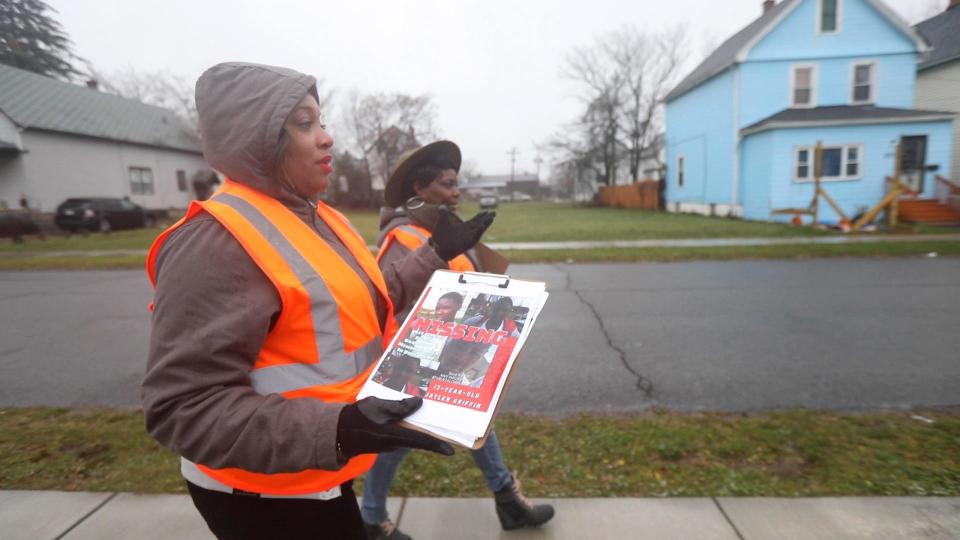The Equalizer: How one woman in Buffalo leads the search for missing kids of color in New York

Kareema Morris is one of USA TODAY’s Women of the Year, a recognition of women who have made a significant impact in their communities and across the country. The program launched in 2022 as a continuation of Women of the Century, which commemorated the 100th anniversary of women gaining the right to vote. Meet this year’s honorees at womenoftheyear.usatoday.com.
In 2013, Kareema Morris' life changed forever.
Her niece, Lanasha Rollerson, went missing. Buffalo Police said the 13-year-old was a runaway, though her family disputed this, according to Morris. Morris and her family decided to take on the search themselves, knocking on doors, canvasing the neighborhood and following whatever leads they could find.
On Sept. 3, police released information about the missing teen. That same day, Rollerson’s body was found inside a garage behind the apartment of 21-year-old Darshawn Morris, no relation to Kareema.
"We were told where she was, but the police wouldn’t help us. They said, 'She’s a runaway,'" Morris said. "The third day, they located her as a homicide in the backyard, covered in trash. So we went from missing to homicide, and that became my area of now expertise because we know what we went through and the things we truly needed. The response for the community is that they really need it."
Darshawn Morris was indicted on the charges of second-degree rape, criminal sexual act and murder. In March 2014, he was found guilty of all charges and sentenced to 39 years to life in prison.
Her niece disappeared, was found dead. Now, she helps NY families find missing kids of color
For some, grief can be insurmountable. It can be a weight over one’s life that prevents them from doing anything. But for 44-year-old Morris and her family, the ashes of grief nourished them, leading them to create initiatives that help their community. Rollerson’s mother, Tamika Maclin, started She Rose WNY, a nonprofit to help grieving women. A cousin started a diaper bank.
And Morris started Bury The Violence, a nonprofit that helps find missing, runaway and trafficked teenagers. BTV also supports families that have been affected by homicide, by buying headstones and providing other resources.
By day, Morris is a clerical typist for Buffalo Public Schools. After she leaves her day job, her second work begins. With the support of her six children, who range in age from 14 to 27 and include two adopted nieces, she goes to the streets to track down missing people. From the grief her own family experienced, Morris knew she had to help others. She figured it out along the way.
“I would get in the car and I would be like, 'Load up, we gotta go find this kid,'" she said. "Or, 'I’ll park at this corner and y’all watch for this or watch for that,' and that’s literally how we started,” Morris said.
A decade later, Morris — who community members lovingly call “the Equalizer” — and her family are still at it, bringing children home and supporting families. In the first five days of January alone, she said, she tracked down two missing kids. For her work, Morris has been named USA TODAY's Women of the Year honoree from New York.
The following conversation has been edited and condensed for clarity.
What has been your proudest moment in doing this work?
The acceptance of my families, the way they look at me. They’re like, "Listen, this is what I got going on, and I need your help." Without the trust of the community, I couldn’t be who I am. I couldn’t do what I do. So my proudest moment is when they tell me how much I’ve helped them, how much they’ve accomplished, how they wouldn’t have been able to do this or they would have had no idea (how to get started). It really validates me to let me know that I’m on the right path.
Have you had any low moments?
I’ve had plenty of low moments because I’ve been out of pocket. I work a regular job; sometimes I didn’t have what I needed to support the community and God always made a way for it to happen. My lowest moments are when I feel like I’m hopeless or I can’t help. When I can’t find somebody and I’m getting dead-end results and I need to get a kid home, I kind of take it personally, which you’re not supposed to, but it’s like I feel helpless.

Is there a guiding principle or mantra that you abide by?
"Breaking the barriers on keeping secrets." Around what I do, often these kids had friends we don’t know about, they’re in relationships we have no idea about. They’re holding true to what they believe about not snitching, and it kills. Literally. And people walk free because you’re bound to this secret life. It’s harmful.
Is there anyone that you look up to?
I really do look at my spiritual leaders, my apostle and my pastors and my bishop’s wife. They give me the inspiration and the encouragement to keep going on a daily basis. They keep me balanced when I’m not where I’m supposed to be.
In doing this work, how have you overcome adversity?
It’s challenging. One because I’m a female and the male counterparts aren’t really supporting. And then, people have to understand that we’re not competition, and so my adversity — how do I face it? I’m resilient. Because if I don’t get this done, who’s going to do it? If I don’t meet the needs that I didn’t have met, how are these families going to know what they need? I don’t want anybody to come in and violate them or exploit their families, and so I have to do it, and that’s what bothers me when I hit those challenges. I’m just resilient to it, and I pray and I just go forward to make sure it’s done at all costs.
What advice would you give your younger self?
You’re going through this for a reason, so pay attention. A lot of the things that I’m doing are things that I went through as a kid. What I experienced with the loss of my niece ... had I probably responded a little bit sooner and more confidently, I could’ve got over a lot of challenges and hurdles that I had on this journey. So trust myself, and my gut of course, and just get it done.

What advice would you give to someone who is interested in doing something similar to help missing teens where they’re located?
Always make sure that your missing child is sacred, don't ever exploit the child or give their information and whereabouts to people who aren’t involved. Make sure that you really have a passion for what that child is going through when you get them. It’s a backstory to every missing child. Were they really running away? What’s going on? And pay attention to see if they’re being trafficked.
2022 Women of the Year: Historic jab: Meet Sandra Lindsay, the first COVID-19 vaccine recipient in the U.S.
Women of the Century: Feminist icon Gloria Steinem, Barbara Walters and Mary Tyler Moore among inspiring women on New York list
This article originally appeared on Rochester Democrat and Chronicle: How Bury the Violence Buffalo founder searches for missing children

